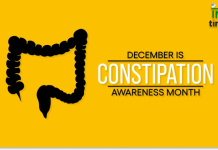
World Psoriasis Day, observed annually on October 29th, is a day dedicated to increasing awareness of psoriasis and other related diseases, such as psoriatic arthritis. This global event was initiated by the International Federation of Psoriasis Associations (IFPA) to raise awareness, reduce stigma, and improve access to treatments. For 2024, the focus is on advocating for better patient care, raising awareness about the challenges of living with psoriasis, and promoting new advances in treatment options.
Understanding Psoriasis
Psoriasis is a chronic, autoimmune condition that primarily affects the skin, causing red, scaly patches to appear. These patches are the result of an overproduction of skin cells, which accumulate on the surface instead of shedding off naturally. Psoriasis is not contagious, but it is a lifelong condition that can significantly impact a person’s quality of life.
Types of Psoriasis
There are several forms of psoriasis, each presenting unique symptoms and challenges:
- Plaque Psoriasis: The most common type, causing raised, inflamed patches covered with silvery scales.
- Guttate Psoriasis: Appears as small, drop-like spots, often triggered by infections.
- Inverse Psoriasis: Occurs in skin folds, causing smooth, red patches.
- Pustular Psoriasis: Causes white pustules surrounded by red skin.
- Erythrodermic Psoriasis: A severe form that covers large areas of the body and can be life-threatening.
Psoriatic Arthritis: More Than a Skin Disease
Beyond the skin, psoriatic arthritis affects the joints, leading to pain, stiffness, and swelling. Approximately 30% of people with psoriasis also develop this form of arthritis, which can lead to long-term joint damage if left untreated. Psoriatic arthritis highlights the systemic nature of the disease and emphasizes the need for early diagnosis and comprehensive care.
Global Prevalence of Psoriasis
Psoriasis affects around 125 million people globally, or about 2-3% of the population. It is a widespread condition that knows no borders, impacting individuals of all ethnicities, ages, and genders. In some countries, psoriasis is viewed as a minor skin issue, while in others, it’s considered a severe health concern due to its impact on daily life and emotional well-being.
The Emotional and Psychological Impact
Psoriasis not only affects the skin and joints but can also lead to significant mental health challenges. The visible nature of the disease often results in social stigma, leading to feelings of isolation, anxiety, and depression. Many individuals with psoriasis experience low self-esteem, and some may avoid social situations due to fear of judgment or misunderstanding. World Psoriasis Day aims to tackle this stigma by educating the public and promoting compassion and understanding.
Causes and Triggers of Psoriasis
The exact cause of psoriasis is still unknown, but research points to a combination of genetic, immune, and environmental factors. People with a family history of psoriasis are more likely to develop the condition. Various factors can trigger flare-ups, including:
- Stress: Emotional stress is a common trigger for psoriasis outbreaks.
- Infections: Certain infections, such as strep throat, can cause guttate psoriasis.
- Weather: Cold, dry weather may worsen symptoms.
- Medications: Certain medications, such as beta-blockers or lithium, can trigger or exacerbate psoriasis.
Psoriasis Treatment: Current Options
Although there is no cure for psoriasis, there are numerous treatments available to help manage symptoms and improve quality of life. Treatments include:
- Topical Treatments: Creams and ointments that reduce inflammation and slow down skin cell production.
- Phototherapy: Controlled exposure to ultraviolet light can help reduce symptoms.
- Systemic Medications: Pills or injections that work throughout the body, often prescribed for moderate to severe cases.
- Biologics: A newer class of medications that target specific parts of the immune system to reduce inflammation and prevent flare-ups.
Advances in Psoriasis Treatment: What to Expect in 2024
As we move into 2024, significant strides are being made in psoriasis research. Biologics continue to revolutionize the treatment landscape, offering more targeted and effective ways to manage the condition. New therapies are focusing on blocking specific proteins involved in the immune response, helping to reduce inflammation and slow down the overproduction of skin cells. Ongoing clinical trials are exploring even more personalized approaches to psoriasis care, with the hope of improving outcomes for patients worldwide.
The Importance of Advocacy and Awareness
World Psoriasis Day 2024 is not only about raising awareness but also about advocating for better access to treatments, reducing stigma, and supporting those living with the condition. Organizations like the International Federation of Psoriasis Associations (IFPA) and local support groups play a critical role in providing resources, organizing events, and pushing for policy changes that benefit patients.
How You Can Get Involved in World Psoriasis Day 2024
There are several ways to participate in World Psoriasis Day 2024:
- Raise Awareness: Share facts and stories on social media to help educate others about psoriasis.
- Join Local Events: Many communities hold walks, seminars, and awareness campaigns in honor of the day.
- Support Research: Donate to organizations funding psoriasis research to help find better treatments.
- Advocate for Change: Write to your local representatives to push for better healthcare policies for psoriasis patients.
Myths and Misconceptions About Psoriasis
Unfortunately, psoriasis is surrounded by myths that can contribute to the stigma experienced by those living with the condition. Let’s clear up some common misconceptions:
- Psoriasis is just a skin condition: Psoriasis is more than skin-deep. It’s an autoimmune disease that can also affect the joints and other parts of the body.
- Psoriasis is contagious: False! Psoriasis cannot be spread through touch or contact.
- There’s nothing that can be done about psoriasis: While there’s no cure, there are many effective treatments available that can help manage the symptoms and improve quality of life.
Inspiring Stories from Psoriasis Warriors
Every year, World Psoriasis Day highlights the stories of individuals who live courageously with psoriasis. These psoriasis warriors share their personal experiences, challenges, and victories, offering hope to others and reminding us that psoriasis doesn’t define who they are. Their resilience is a source of inspiration and a reminder that with the right support, life with psoriasis can be both fulfilling and empowering.
The Future of Psoriasis Research
The future of psoriasis treatment is bright. Ongoing research into gene therapy, immune system modulation, and personalized medicine could one day lead to a cure. Clinical trials are also exploring new biologic drugs that target more specific immune pathways, offering patients more tailored and effective treatments. In the coming years, we may see significant breakthroughs that will change the way psoriasis is managed, improving outcomes for millions worldwide.
Conclusion
World Psoriasis Day 2024 is a vital opportunity to raise awareness, break down stigma, and support those living with psoriasis. This year’s theme emphasizes the importance of empowering patients, advocating for better healthcare policies, and advancing research to one day find a cure. Whether through advocacy, participation in events, or sharing educational resources, we can all contribute to making life easier for those affected by psoriasis.
FAQs
- What is World Psoriasis Day?
World Psoriasis Day is an annual global event observed on October 29th to raise awareness about psoriasis and support those living with the condition. - Is psoriasis contagious?
No, psoriasis is not contagious. It cannot be spread from person to person through touch or any other form of contact. - Can psoriasis be cured?
Currently, there is no cure for psoriasis, but treatments are available to help manage symptoms and improve quality of life. - What are the most common triggers of psoriasis?
Common triggers include stress, infections, cold weather, certain medications, and injuries to the skin. - How can I participate in World Psoriasis Day 2024?
You can participate by sharing information on social media, attending local events, supporting research, and advocating for better care and understanding for those with psoriasis.



































